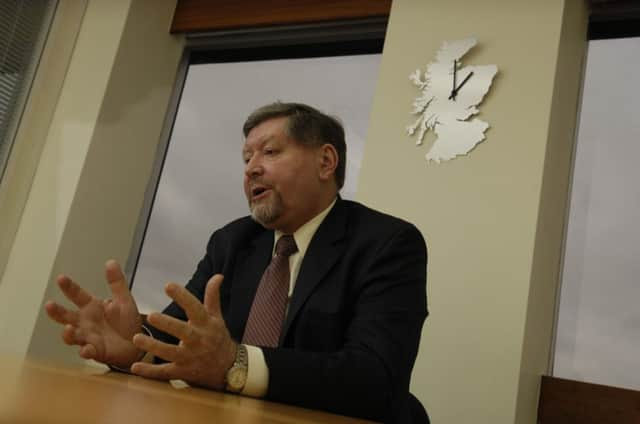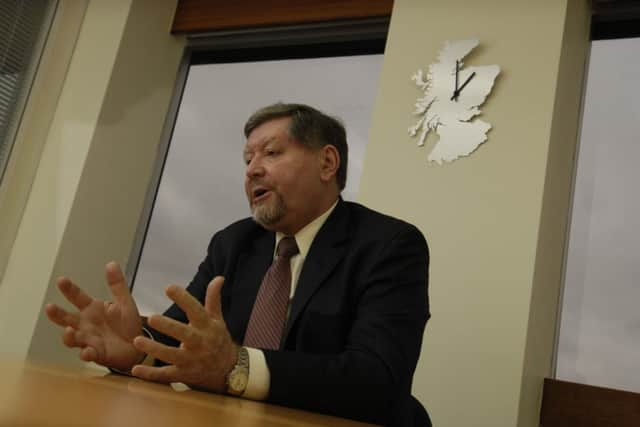Independent Scotland may need Plan B, says adviser


Crawford Beveridge said it was “entirely possible” Mr Salmond’s formal currency union plans would be dismissed by politicians south of the Border.
The admission came during a keynote speech, in which he described so-called “sterlingisation” as a viable option for an independent Scotland.
Advertisement
Hide AdAdvertisement
Hide Ad

Mr Beveridge, the chairman of a group of economists commissioned by Mr Salmond to examine the currency, suggested that sterlingisation – using the pound without Bank of England back-up – could become a “transitional” currency arrangement after independence, although this could last anything from six months to several decades.
Throughout the independence debate, Mr Salmond has shied away from being drawn on an economic Plan B -– most notably when he was tackled on currency by Alistair Darling in the recent STV debate.
In his speech last night, Mr Beveridge said that a formal currency union that would see Scotland share the Bank of England as lender of last resort was still the preferred option.
But he conceded that it was possible Westminster politicians would keep their pledge not to allow an independent Scotland to enter a currency union with the rest of the UK – forcing the Scottish Government to produce a Plan B.
“It is entirely possible that we get through to the Yes … they say ‘in spite the fact it is going to be bad for England, we are not going to do it’,” Mr Beveridge said. “So it is always possible, but we can see there are many other viable options. Every country has a currency and we are going to have one, too.”
If a currency union was ruled out, Mr Beveridge said there were “several viable options” of which sterlingisation – using the pound in the same way that Panama uses the US dollar – was one.
Mr Beveridge made the remarks when he went off the script of a 30-page speech, titled The Economic Foundations of an Independent Scotland, to students at Glasgow Caledonian University. It was the culmination of two-and-a-half years of work carried out by the Scottish Government’s Fiscal Working Group, which he chairs.
Advertisement
Hide AdAdvertisement
Hide AdOne of Mr Salmond’s key arguments for a currency union has been that if an independent Scotland is not offered a share of assets, in terms of a share of the Bank of England, the Scottish Government would be entitled to walk away from its share of its liabilities in terms of the UK’s debt – a figure likely to reach
£1.6 trillion by 2016.
But during a question and answer session after his speech, Mr Beveridge revealed he had reservations about that tactic, saying his view was that it would be “morally difficult” to walk away from the debt.
The Scottish American technology executive, who has been an SNP donor, also admitted that the credit ratings agencies could take a dim view if Scotland did not meet its debts.
On possible Plan Bs, Mr Beveridge said economic conditions did not favour the euro. Dealing with sterlingisation, he said: “In our view, sterlingisation can be considered an option, but primarily in terms of a manageable transition and as a mechanism which opens up other options over the long term.”
Mr Beveridge later added: “If you look at various places where this has happened, it has been transitional sometimes for as little as six months to a year – three or four years. (Sometimes) it has been transitional for more than 50 years. You can’t tell.”
On a Scottish separate currency, he cited the examples of Hong Kong pegging its currency to the US dollar and Ireland having a similar arrangement with the pound from 1927 to 1979.
Earlier in the day, Better Together gathered a group of economic experts to argue that the best way to keep the pound was to remain in the United
Kingdom.